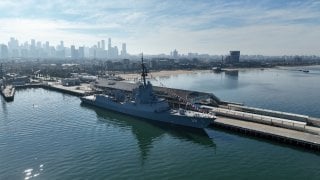Is Australia Hedging Again? Not Really.
Australia is betting on a multi-partner and multi-sector whole-of-nation approach to its security.
Similarly, Australia’s relationship with Japan is going through a very productive phase. Two of the foremost areas of cooperation are economic security and defense. Information sharing, supply chain resilience, and economic risk mitigation are part of the bilateral agenda. Further, they have agreed to enhance engagement via people-to-people links and joint military training exercises as concerns over China’s military actions in the Indo-Pacific grow.
Next year, Australia will participate for the first time in Orient Shield, the largest annual field training exercise between the U.S. Army and Japan Ground Self-Defense Force. As part of the Asia-Pacific Economic Cooperation (APEC) forum, the IPEF, the Trans-Pacific Partnership, the Regional Comprehensive Economic Partnership Agreement (RCEP), of course, the Quad, and a host of others, their multilateral and minilateral partnerships are not lacking either.
On the other hand, Australia’s ties with South Korea are considerably underutilized. Under President Yoon Suk-yeol, with his Global Pivotal State agenda, the ROK is looking to enhance strategic alignment, particularly through cooperation in energy transition, emerging technologies, climate change, and economic security. Both nations also want to explore an Australia-Japan-Korea trilateral opportunity to expand their efforts for a rules-based order in the Indo-Pacific.
The Quest for Rules-Based Order
One of the missing priorities for Australia is its lack of strengthened strategic engagement with the EU and its member states. However, Australia’s ties with Germany, in particular, have witnessed growth. Yet, in the current geopolitical context, Australia would do well to engage with the EU further, especially as the latter has boosted its pivot to the Indo-Pacific via infrastructure projects like the Global Gateway and economic-technological partnerships with countries like India. At the same time, observers have noted only “limited pan-EU” efforts in this area, with Australia envisioned as a “bridge” between the EU and the Indo-Pacific via minilateral and “middle-lateral” engagements.
Notably, Australia and the EU share common concerns about maintaining a rules-based international order where “no country dominates or is dominated.” They are united not only in their commitment to democratic values but also in their efforts to protect human rights, advance multilateralism, promote sustainable development, and strengthen climate action. Importantly, both are focused on boosting economic integration and connectivity in the Indo-Pacific while working to reduce economic dependencies.
In this regard, Australia can link the EU and the Indo-Pacific and engage the EU with the Quad and initiatives like the IPEF. Moreover, as both the EU and Australian foreign policies give commensurate regard to the multilateral system, they should look to strengthen the regional forums’ functioning via cooperation in the ASEAN format (as dialogue partners and vital trade partners of the bloc).
In sum, it is clear that Australia looks to “modernize” its engagement with the Indo-Pacific through “inclusive economic growth, social justice, environmental sustainability, and constructive international relationships that enhance regional peace and security.” Certainly, engagement with all “like-minded” powers is imperative. However, Australia’s aims will be better served if its relationship with the EU—a strong Indo-Pacific stakeholder with immense economic-technological power, a balanced outlook, and deep linkages to local partners—does not lag.
Dr. Jagannath Panda is the head of the Stockholm Center for South Asian and Indo-Pacific Affairs (SCSA-IPA) and a professor at the Department of Regional and Global Studies at the University of Warsaw.
Julie Yu-Wen Chen is a professor of Chinese Studies at the University of Helsinki and one of the editors of the Journal of Chinese Political Science.
Richard Ghiasy is a senior fellow at the Leiden Asia Centre, Leiden University, and director of GeoStrat, a boutique geopolitics consultancy in the Netherlands.
This work is part of a Stiftung Mercator-funded project titled “Order in the Indo-Pacific: Gauging the Region’s Perspectives on EU Strategies and Constructive Involvement.” The views and opinions expressed are those of the authors only and do not necessarily reflect those of Stiftung Mercator or the authors’ respective institutes.
Image: Dans Destinations / Shutterstock.com.

